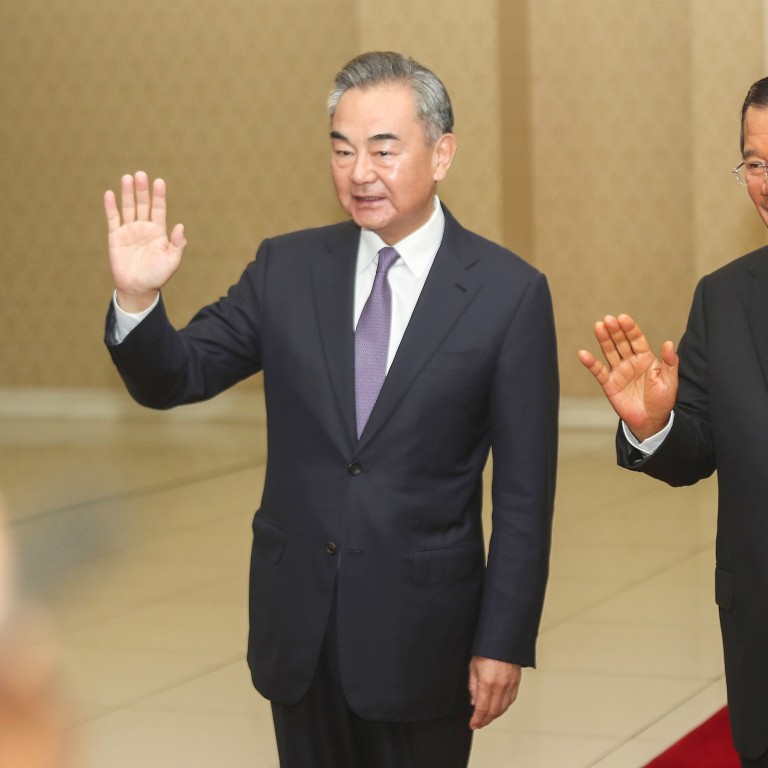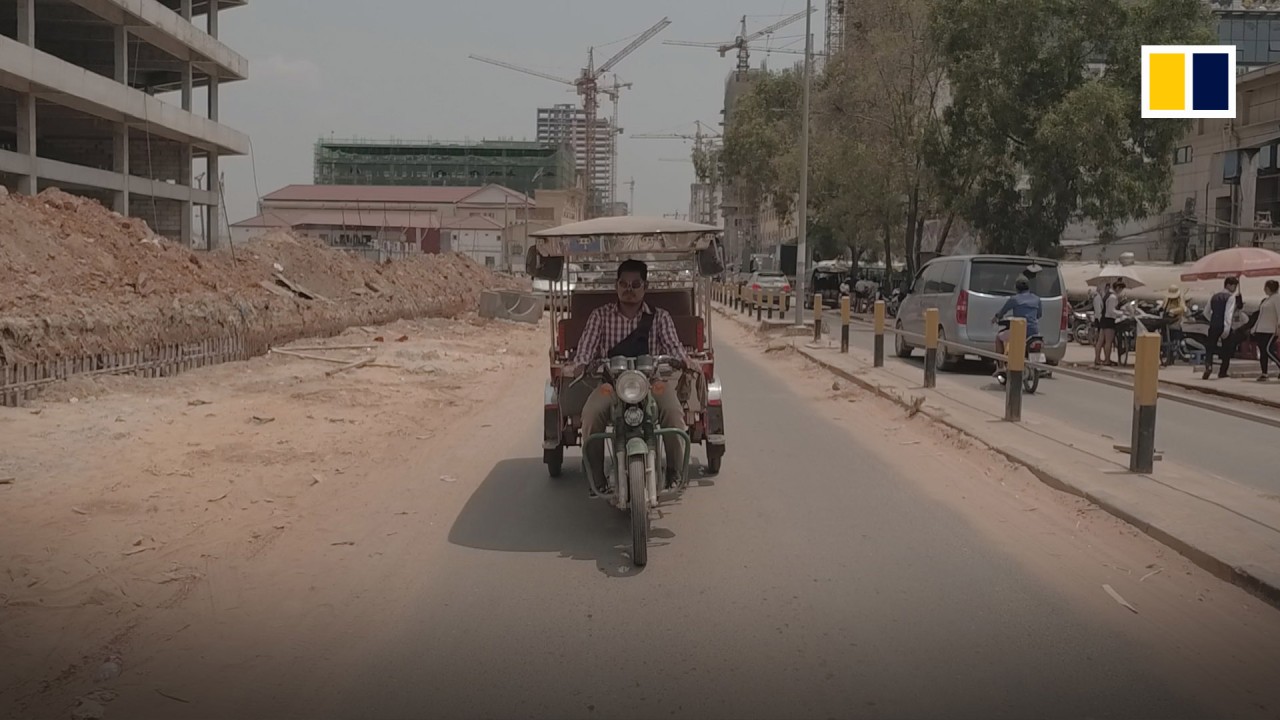
China and Cambodia seal free-trade deal, funding for ‘priority’ projects
- Beijing offers US$140 million in loans and grants for series of infrastructure schemes, including undersea cable link to Hong Kong
- Agreements follow suspension of Phnom Penh’s special trade preferences with the EU
China has promised other agreements with Cambodia, which is largely seen as one of China’s closest allies in the 10-member Association of Southeast Asian Nations.
On top of the free-trade deal, which followed almost a year of formal talks, Beijing has agreed to offer loans and grants for eight infrastructure projects that Cambodia has identified as “top priority”.
These projects include an undersea fibre-optic communications cable between the coastal city of Sihanoukville and Hong Kong, construction and expansion of national roads, and construction of a power transmission plant.
Mark Wong, Cambodia CEO of Chinese tech giant Huawei, said last year that the company planned to team up with China Communications Construction on the undersea cable project, but no official plans have been announced since then.
Other deals signed between China and Cambodia during Wang’s visit were projects to improve a hospital and development of sewage systems in Sihanoukville.

06:14
Change in Cambodia: Sihanoukville's Chinese influx
Beijing has said there are “no strings attached” to its investments, while Hun Sen has repeatedly dismissed claims that Cambodia has been trapped in a spiral of impossible repayments.
As of 2019, Cambodia owed around US$4.5 billion to China, accounting for about 40 per cent of its total foreign obligations, according to the Cambodian Ministry of Economy and Finance.
Wang and Hun Sen did not disclose the terms of the trade deal on Monday but in July, the head of Cambodia’s negotiating team, Sok Sopheak, said that at least 340 Cambodian export commodities including pepper, garlic and seafood would be exempt from tariffs under the agreement.
The negotiations have been under way since December 2019 after the European Union, a major market for Cambodian products, suspended some of Cambodia’s special trade preferences as punishment for human rights violations.
Sam Seun, a researcher at the Royal Academy of Cambodia, said that although the free-trade agreement would be much more beneficial to China – given Cambodia’s trade deficit with China – it was still important to Phnom Penh.
“Cambodia will also get good opportunities to sell their products to China, while its production capacity is limited,” Sam Seun said.
Cambodia caught in the middle of US-China clash over South China Sea military bases
Cambodia is the first stop on a Southeast Asia trip that will also take Wang to Malaysia, Laos, Thailand and Singapore.
Chansok Lak, a lecturer at the department of international studies at the Royal University of Phnom Penh, said Wang’s decision to stop in Cambodia first indicated the growing strategic importance of Cambodia to China amid China’s rivalry with the United States.
“China’s US$140 million projects are important and meaningful for Cambodia at the time of crisis to reaffirm the two countries’ comprehensive strategic partnership,” Chansok Lak said.
He said Chinese help to Cambodia was not new but Cambodia had been working on self-reliance, “one [avenue] of which is economic partnership diversification, especially at the time of Covid-19”.
Sam Seun said Cambodia needed investment in its infrastructure but Phnom Penh should ensure the money was used in a “transparent way”.
“Cambodia needs to ensure that they use loans effectively, and also [they can] pay back when China asks for compensation for the loan,” he said.

